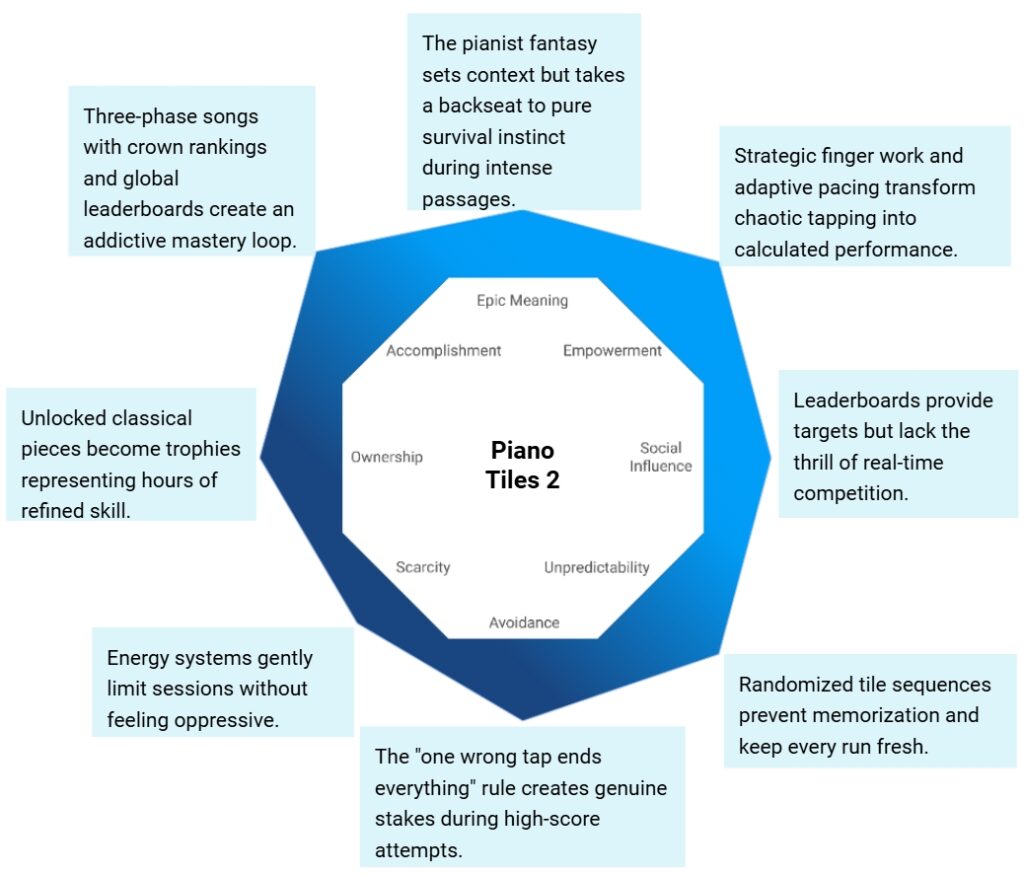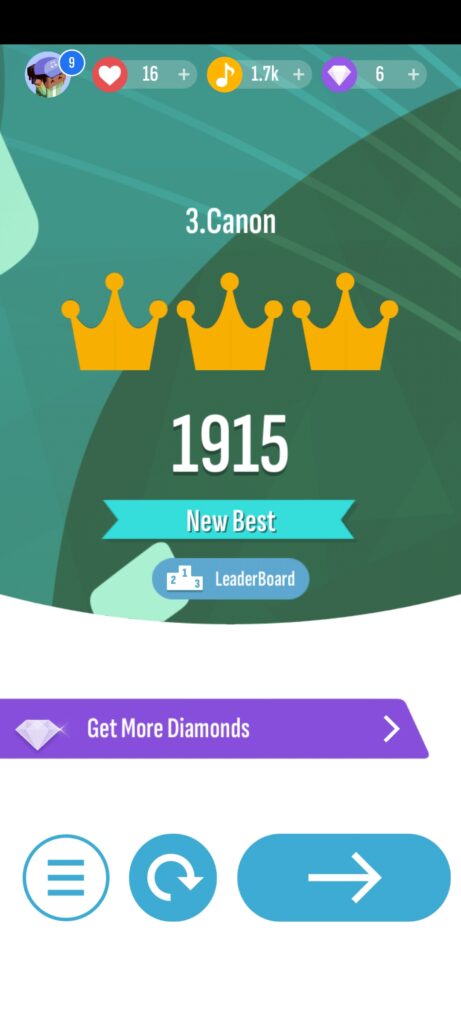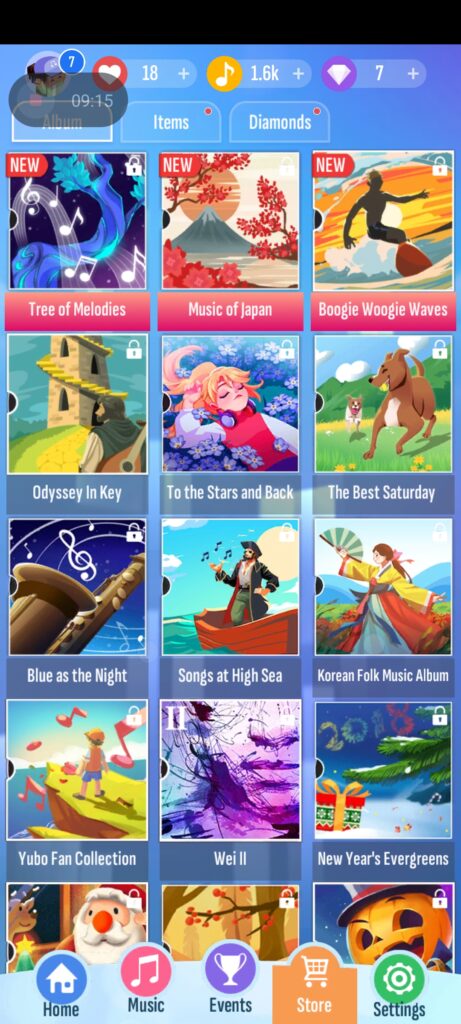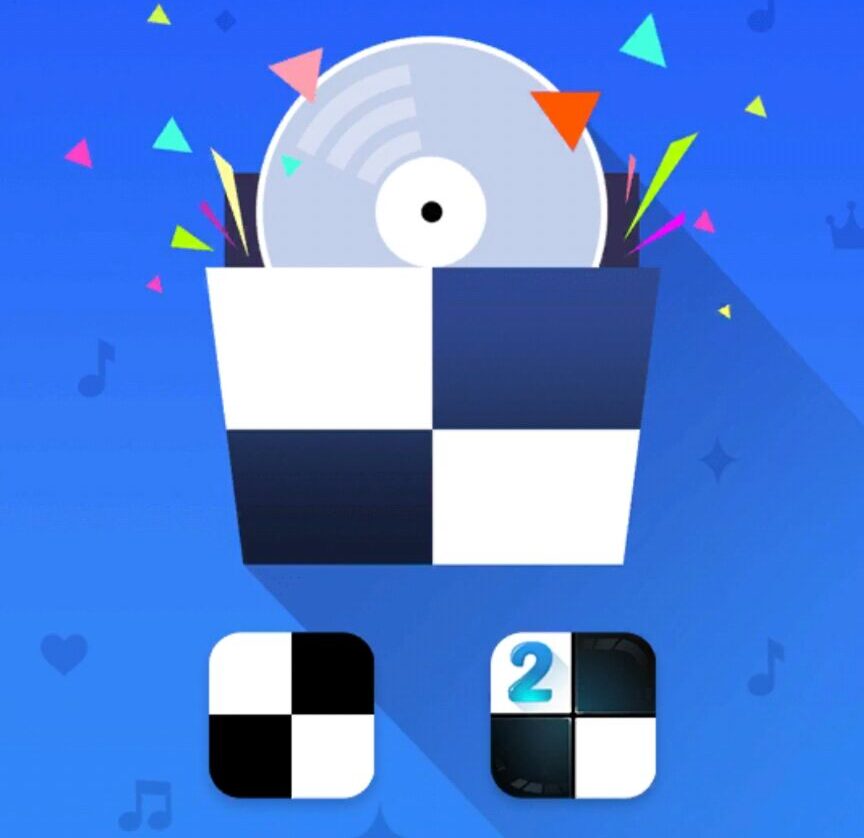Before we dive into the analysis, it’s worth noting that few mobile games have managed to sustain their appeal across hardware generations quite like Piano Tiles 2. Its deceptively simple premise continues to challenge players years after its initial release.
Octalysis Rating Table
| Core Drive | Score (1-10) | Rationale |
|---|---|---|
| Meaning | 5 | The pianist fantasy sets context but takes a backseat to pure survival instinct during intense passages. |
| Accomplishment | 8 | Three-phase songs with crown rankings and global leaderboards create an addictive mastery loop. |
| Empowerment | 7 | Strategic finger work and adaptive pacing transform chaotic tapping into calculated performance. |
| Ownership | 6 | Unlocked classical pieces become trophies representing hours of refined skill. |
| Social Influence | 5 | Leaderboards provide targets but lack the thrill of real-time competition. |
| Scarcity | 4 | Energy systems gently limit sessions without feeling oppressive. |
| Unpredictability | 7 | Randomized tile sequences prevent memorization and keep every run fresh. |
| Avoidance | 6 | The “one wrong tap ends everything” rule creates genuine stakes during high-score attempts. |
GScore: 300
Evaluation Notes:
Scoring range: 1-10. Higher scores reflect stronger implementation of the core drive and greater player motivation.
GScore (Gamification Score): Calculated based on the Octalysis Framework.
Octalysis Radar Chart

Hands-On Analysis
1. Meaning (5/10)
While you’re technically playing classical pieces, the fantasy shatters when tiles start flying. During Turkish March‘s finale, you’re not thinking about Mozart – you’re in pure survival mode, making the musical theme feel more like a light wrapper than a deep purpose.
2. Accomplishment (8/10)
What separates this from simpler rhythm games is its brilliant song structure. First you master the melody, then survive a chaotic bonus round, before finally conquering the speed trial. Earning that third crown on a tough track like Cannon provides an incredible endorphin rush.

3. Empowerment (7/10)
The shift from novice to expert is tangible. I went from stabbing randomly at tiles to developing a fluid finger-rolling technique between lanes. Learning to briefly pause before dense clusters instead of rushing transformed my scores – it’s spatial intelligence under pressure.
4. Ownership (6/10)
Each unlocked song represents a new challenge conquered. When I finally saved enough to purchase River Flows in You, it felt like adding a prized trophy to my collection – a permanent marker of progress in a game about transient performances.

5. Social Influence (5/10)
The leaderboards give you something to beat, but it’s hollow competition. You’re battling a number your friend set hours ago rather than the player themselves. I found myself wishing for live duels to truly test my skills against others.
6. Scarcity (4/10)
The energy system is present but reasonable. It serves more as a natural break point after a few frustrating failures rather than aggressively blocking play. Weekly leaderboard resets provide just enough urgency to reclaim your ranking.
7. Unpredictability (7/10)
Just when you think you’ve mastered a song’s pattern, the random generator throws a curveball. This variability is what separates masters from beginners – the ability to adapt when your perfect mental map falls apart during speed sections.
8. Avoidance (6/10)
There’s nothing quite like the gut punch of ending a potential record run because your finger grazed a white tile. This ever-present risk transforms relaxed play into heart-pounding tension, especially during the final seconds of a speed trial.
Overall Summary & Recommendation
The Verdict: Piano Tiles 2 remains the gold standard for mobile rhythm games, masterfully blending musical performance with arcade-style tension. Its three-phase design creates a compelling skill ceiling that will challenge perfectionists for months.
The Catch: While the core gameplay is impeccable, the social features feel dated. The lack of real-time competition makes the experience feel solitary in an era of connected gaming.
Play it if: You enjoy games that reward precision and gradual mastery. It’s perfect for short sessions where you want to test and improve your reflexes.
[Read More] https://us.09gamereview.com/blog/
[YouTube] https://www.youtube.com/@09GameReview


Leave a Reply